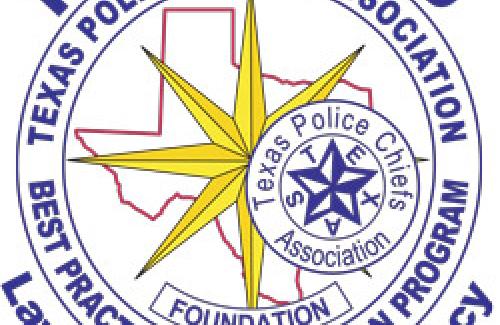Best Practices
In 2011 Corinth became a "Accredited" police agency, and earned re-recognition in 2015, 2019 & 2023 through the Texas Police Chiefs' Association Law Enforcement Accreditation Program.
The Law Enforcement Accreditation Program is a voluntary process where police agencies in Texas prove their compliance with 164 Texas Law Enforcement Best Practices. These Best Practices were carefully developed by Texas Law Enforcement professionals to assist agencies in the efficient and effective delivery of service, the reduction of risk and the protection of individual’s rights.
Being “Accredited” means that the agency has proven that it meets or exceeds all of the identified Best Practices for Texas Law Enforcement. These Best Practices cover aspects of law enforcement operations such as use of force, protection of citizen rights, pursuits, property and evidence management, and patrol and investigative operations. Noted police researcher G. Patrick Gallagher identified 12 critical issues (other than vehicle accidents and employee injuries) which get police departments in trouble. These critical areas are:
• Use of Force
• Emergency Vehicle Operation and Pursuits
• Search, Seizure, and Arrest
• Care, Custody and Restraint of Prisoners
• Domestic Violence and agency employee domestic misconduct
• Off-Duty Conduct
• Selection and Hiring
• Sexual Harassment
• Complaint and Internal Affairs Management
• Narcotics, SWAT, and High Risk Warrant Service
• Dealing with the Mentally Ill and Developmentally Disabled
• Property and Evidence Management
Accreditation Program Standards address these areas in an attempt to minimize risk and increase officer safety and training. While being “Accredited” does not guarantee an agency will not make a mistake, it does ensure that the agency has studied these critical issues, has developed policy and procedures to address them and has systems in place to identify and correct problems.
A Committee of Chiefs of Police and Command level officers assisted in the development of standards that were believed to be necessary for proper functioning of Texas law enforcement agencies. They reviewed Texas law and other State Accreditation Program standards to determine which were most appropriate.
An appointed Committee of professional Police Chiefs from across the state then reviewed these standards and approved them for use. That same Committee of nine Police Chiefs now conducts the final review of an agency’s efforts and awards “Accredited” status in addition to conducting an annual review of the standards for additions and modifications.
Police Officers exercise government’s most awesome powers – the power to stop and question a citizen, the power to arrest a citizen, to seize his person and property, and the power to use force in that process. Officers often operate alone without direct supervision. Police agencies direct and control officer’s activity through supervision, training and written policies and procedures. Since supervisors cannot always be present, the training and the policies and procedures of an agency are critical to insuring proper performance. Appropriate equipment is also necessary. The Accreditation Program insures an agency has addressed the most critical law enforcement issues in both policy as well as actual operation. The Accreditation Program does not tell an agency what their policy must be, but rather it insures that the policy, procedure, or operation addresses the critical aspects of an issue.
The Accreditation Program assures both City Management and the citizens of a city that their Police Department is operating in a manner that reflects the current Best Practices of Law Enforcement. It can provide citizens with reassurance and improve community relations and cooperation – and also leads to improved performance within the department.


